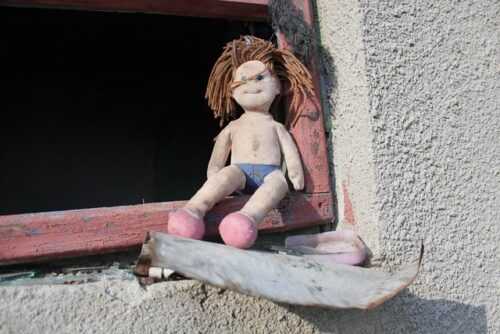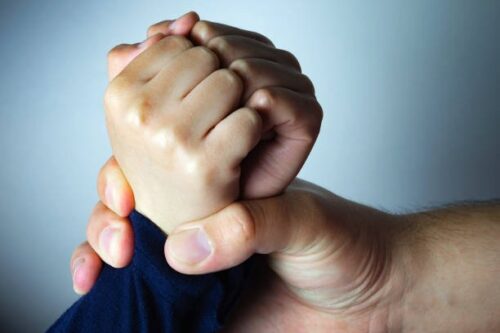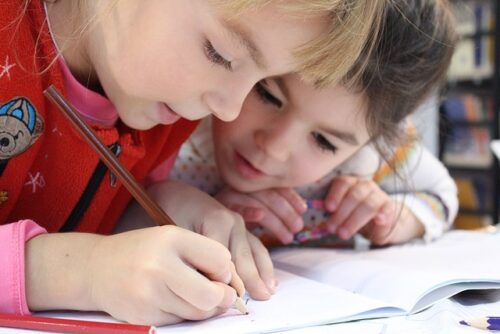Therapy For Abused And Neglected Children
Black eyes are not the only sign of child abuse. While the scars left by physical abuse are horrifying, not all indications of abuse against kids are as visible. A child may suffer severe, lifelong trauma from acts such as ignoring their needs, placing them in unsafe, unattended instances, exposing them to inappropriate sexual activities, or giving them reasons to feel unworthy or foolish.

Source: pixabay.com
Serious emotional harm is the outcome, regardless of the manner of abuse. However, assistance is offered. It is crucial to report any suspicions you have that a kid is being abused or neglected. Early intervention can assist both the kid and the abuser in receiving the support they require.
It is crucial to understand how to react, and the data points to the potential efficacy of the following interventions for kids and teenagers. Provide an option and describe each intervention’s purpose and potential benefits to focus on preventing child abuse. Only some techniques will work for everyone; thus, an in-depth evaluation should guide the decision.
Effects Of Child Abuse And Neglect
The child abuse resource center professionals believe that there are long-lasting effects from all forms of abuse and neglect. Some of these wounds may be physiological, but emotional trauma can cause lifelong damage that affects a kid’s ability to perform at home, at work, and in school, as well as their perception of oneself and future healthy relationships.
Poor Trust And Relationship Issues
Who can you trust without your parents? Without this basis, knowing who to depend on or how to build trust is extremely challenging. Adult relationship maintenance may become challenging as a result. The adult’s lack of understanding of a healthy and beneficial relationship can also result in dysfunctional partnerships. In adolescent psychiatry, these are the common issues these kids face.
Crucial Sentiments Of Being “Worthless”
It can be rather challenging to get over basic beliefs of worthlessness if you were repeatedly told as a kid that you are unintelligent or unworthy. Children who have experienced verbal abuse may grow up to disregard education and academic opportunities or take low-paying occupations because they don’t think they deserve better. Because of the negative connotation and humiliation associated with the abuse, survivors frequently experience a sense of being ruined.
Emotional Regulation Issues: Those who have experienced child maltreatment are unable to appropriately communicate their feelings. Consequently, feelings become suppressed and manifest inadvertently. Child abuse or neglect survivors may have unexplainable anxiety, stress, despair, or rage. They might use drugs or alcohol to block off the hurt emotions.
Recognizing The Different Types Of Child Abuse
Although abusive behavior and neglect can take many different forms, all of them have an emotional impact on a kid. A child who experiences abuse—whether it takes the form of a slap, a critical remark, dead silence, or uncertainty about whether food will be on the table—ends up feeling frightened, abandoned, and alone.
Emotional Abuse
Despite what some people may think, emotional abuse and harsh words can seriously harm the psychological well-being of a kid and social growth. Frequent denigration, humiliation, and calling names are a few instances of emotional abuse. Some additional instances involve convincing a kid that they’re “bad,” “useless,” “no good,” or “a mistake.” Other behaviors that can lead to emotional abuse include rejecting or disregarding a child as a form of discipline, providing silent treatment, restricting physical contact—no kisses, hugs, or other expressions of affection—and subjecting a kid to acts of violence against other people, such as against a brother or sister, another parent, or even a pet.
Child Neglect
A common kind of child abuse is neglect, which is the practice of not meeting a kid’s fundamental requirements, such as enough food, clothing, supervision, or sanitation. It’s not always simple to identify child abuse. A parent may occasionally lose the ability to care for their child emotionally or physically. Examples of this include severe illness or injury, untreated sadness or anxiety, and untreated anxiousness. In other instances, abusing drugs or alcohol can dramatically impair judgment and one’s capacity to protect a child. The youngster never knows what will irritate their parent. No regulations or boundaries are evident. The child is always cautious as to never knowing what will make their parents decide to give up on them.

Source: pixabay.com
Physical Abuse
Here, the child is being physically harmed or injured. It could be from overly harsh physical penalties or a purposeful attempt to cause damage to the youngster. A large number of parents who abuse their children physically maintain that their acts are only meant to teach their children good behavior. Physical abuse and the administering of physical retribution as a form of discipline. However, they are very different. When abusive parents use beatings to “keep their child in line,” they are teaching their children how to protect themselves from getting struck and deal with other’s harm, not how to behave or develop as people. Abusive parents may think that their kids must fear them in order for them to obey.
Sexual Abuse
Due to the layers of shame and guilt associated with child sexual abuse, it is an extremely complex kind of abuse. It’s critical to understand that not all cases of sexual abuse have physical contact. Regardless of whether a physical encounter takes place, sexual abuse occurs when a child is exposed to sexual settings or content. Shame and remorse plague children who have experienced sexual assault frequently. They can believe that they caused the sexual assault or are somehow accountable for it. They can believe they caused the mistreatment or are somehow accountable. As they get older, it can cause issues with relationships, sexuality, and self-loathing. Kids find it extremely difficult to come out because of the shame associated with sexual abuse. They can be concerned that their family will become estranged, that people won’t believe them, or that they’ll get furious with them.
Therapy For Child Abuse And Neglect
Individuals or kids who have been neglected can get assistance from a number of institutions. Kids in need can access various supportive mental health services nationwide from government organizations, social services and health providers, and psychological specialists. These needs can be validated through first priority on home visits. Negligent guardians are worked with using a variety of therapeutic modalities designed for victims or children of neglect. Using this medical care method, you can ensure that the neglect stops.
Several protective factors of different therapy approaches can successfully address neglect-related problems. Among these are:
Group Therapy
Studies have indicated that group therapy works well for rehabilitating children who have been mistreated or abused. Those who have been neglected have the opportunity to speak about their experience with others who have gone through similar experiences in group therapy. This kind of interaction serves to normalize and reduce stigma and any sentiments of guilt or powerlessness the kids may be feeling. The goals of group therapy are to promote better social functioning, enhance adjustment, and foster care and deeper connections between individuals, in addition to reducing signs and symptoms, including signs of depressive disorder and low motivation.
Trauma-Informed Care
When working with neglected children, trauma-informed care is frequently employed. Usually, this means that the caregiver needs to have a thorough awareness of the kind of trauma the patient or children have. Other essential components of trauma-informed therapy for neglect include security, reverence, letting the sufferer of neglect run the show, and emphasizing the victim’s assets. In addition to enhancing patient involvement, adherence to treatments, well-being of the caregiver, and wellness, trauma-informed care recognizes the necessity of comprehending the life events of a child in order to give successful care.
Structural Family Therapy
Structured family therapy has been shown to be a successful child parent psychotherapy treatment for neglect that results from dysfunctional and problematic family relationships. With an aim to meet the requirements of all family members as well as those of the individual, this type of treatment aims at satisfying the demands of each member individually and assists the family in discovering new coping mechanisms. Structural family therapists approach the family unit as a system and strive to enhance communication within the family as well as promote changes to the norms that guide its operations.
Parent-Child Interaction Therapy (PCIT)
In cases when abuse of children, especially neglect, has occurred, PCIT has been demonstrated to reduce the likelihood of future abuse or neglect, parental anxiety, and behavioral problems in children. In order to change detrimental caregiver habits, the method focuses on particular parent-child interaction dynamics. The foundation for developing interpersonal abilities, social skills, and emotional management is a warm, supportive connection, which the parent facilitates with the assistance of attachment theory principles applied in PCIT.

Source: pixabay.com
Art Therapy
Young children who have been the victims of child neglect could benefit, especially from art therapy. Art therapy engages the right brain and gives kids nonverbal means of expressing themselves, which can assist in stimulating brain growth in situations where abuse and the trauma that goes along with it may damage a child’s development. Through engaged art-making, the creative method applies psychological knowledge that allows kids to cope emotionally and the way humans function within a psychotherapy relationship, art therapy mental health treatment is a field of mental health care that improves the lives of people, families, and communities.
Final Thoughts And Takeaways
Not all child abuse and neglect have overt indications of danger. But you can significantly impact a kid’s life if you can identify the warning signals of a problem. The kind of abuse determines how a child is treated, whether they are abused or neglected. The kid’s security must be the primary concern, which may entail contacting social assistance or the police department so the youngster can be removed to a secure location.
Therapy needs to be provided by qualified experts who concentrate on enhancing relationships, reliable and caring care giving, defined limitations, secure and secure connections, and positive development, regardless of the selected type of support.








Recent Comments